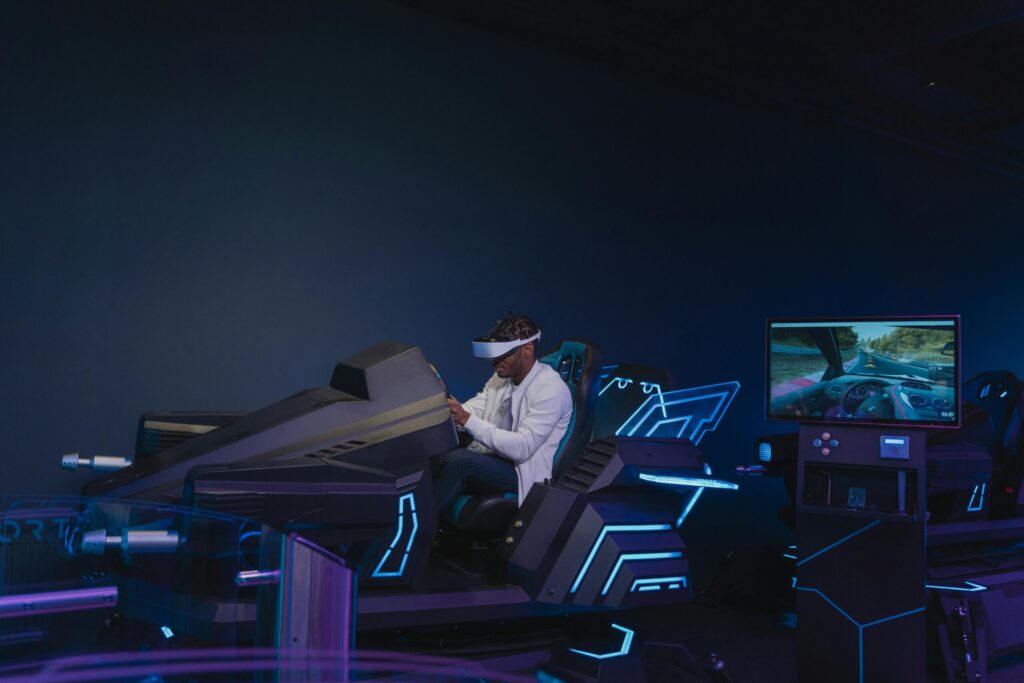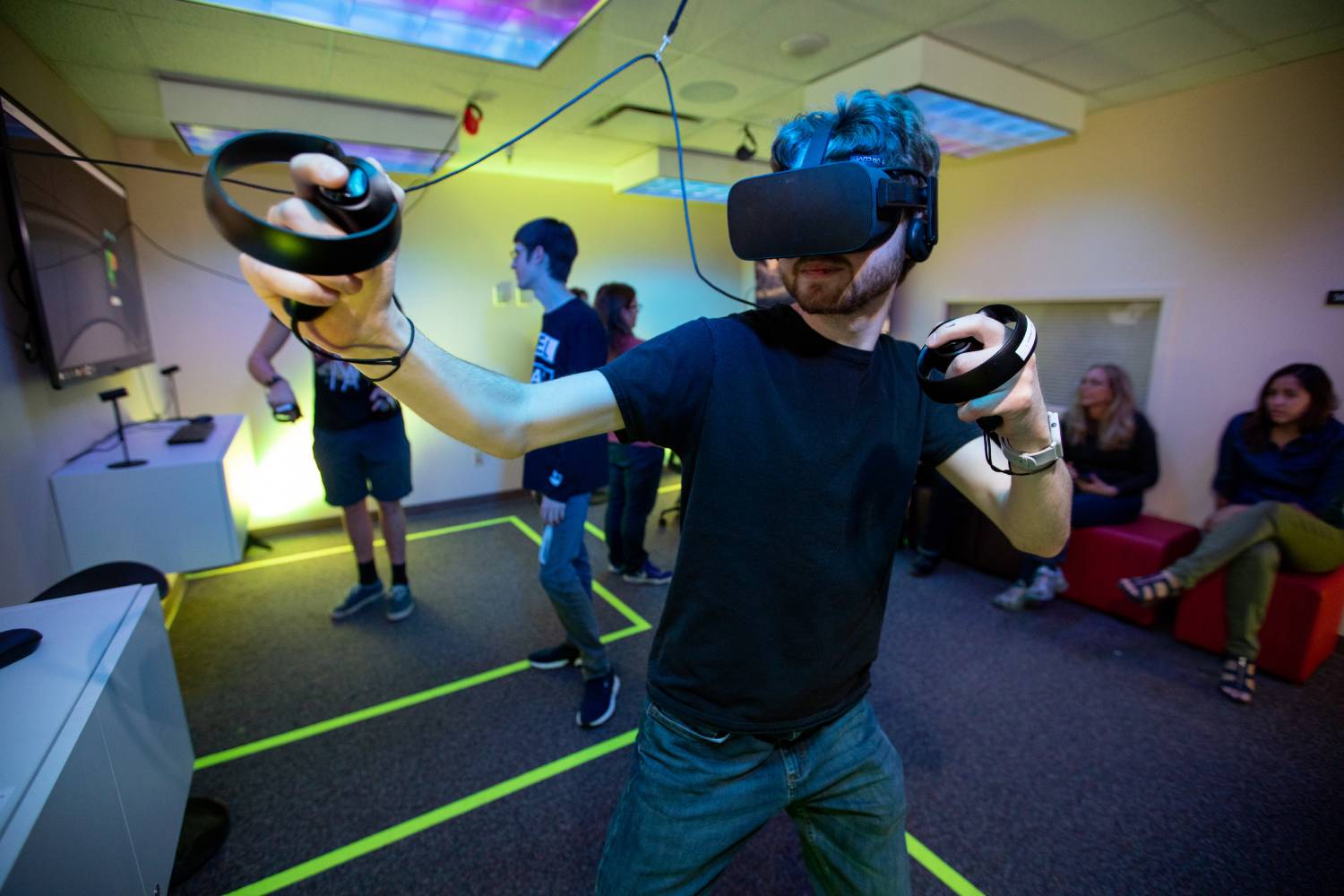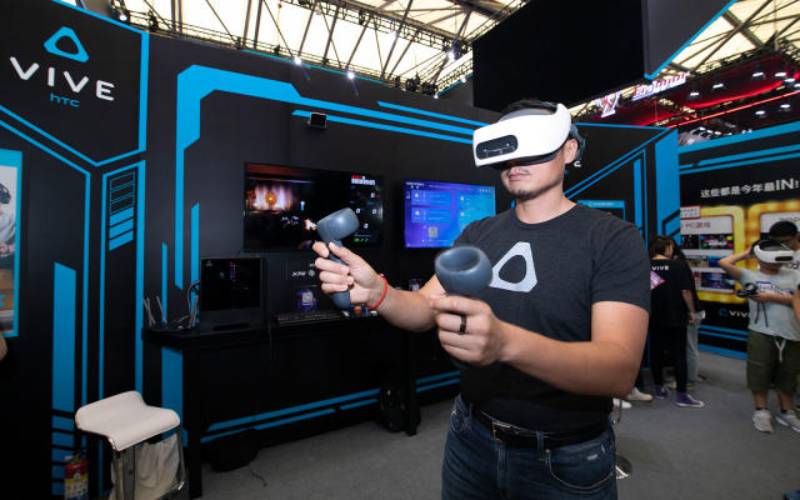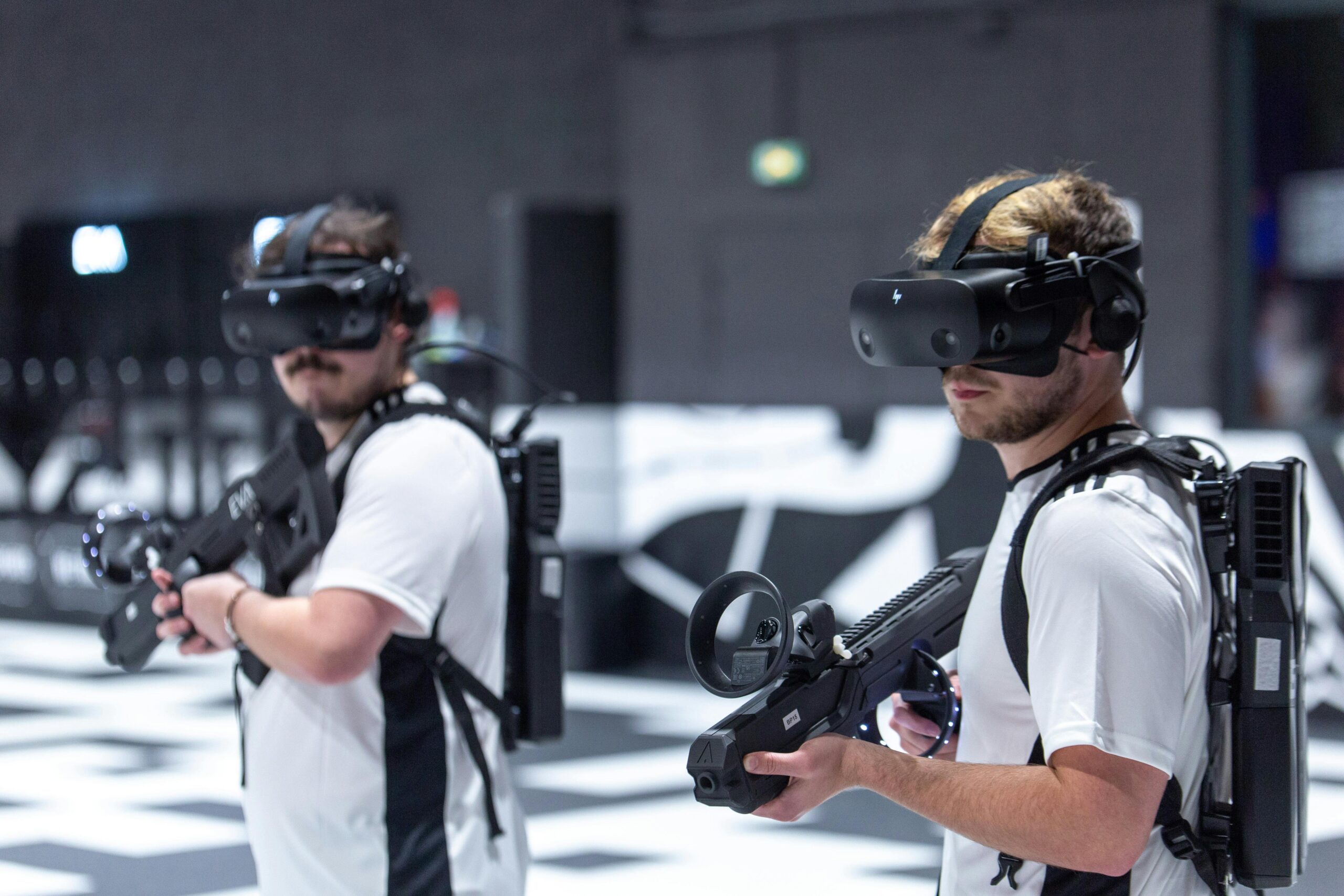The Gaming Blog

The Future of VR Gaming: What to Expect in the Next Decade
Virtual Reality (VR) gaming has changed a lot in the last ten years. It has moved from a niche technology to a popular gaming experience. VR gaming is set for thrilling innovations thanks to fast improvements in hardware, software, and immersive technologies. By 2025 and later, we can expect new advances that enhance realism, interactivity, and accessibility.
This guide looks at the best virtual reality games of 2025 and new hardware innovations. It shows how VR gaming is changing the future of immersive experiences.
The Evolution of VR Gaming

1. From Early Experiments to Mainstream Success
VR gaming began with basic experiments in the 1980s and 1990s. It really took off in the 2010s when headsets like the Oculus Rift and HTC Vive made it real. Since then, the industry has evolved significantly:
- 2016-2020: Introduction of high-end VR headsets like PlayStation VR, Oculus Quest, and Valve Index.
- 2021-2024: Advancements in standalone VR, improved motion tracking, and increased game development for VR platforms.
- 2025 and Beyond: Expectations of photorealistic graphics, full-body tracking, and seamless integration with augmented reality (AR).
2. How VR Gaming Has Changed Gameplay Experiences
The best VR games today offer fully immersive environments, realistic physics, and interactive mechanics that weren’t possible in traditional gaming.
- Room-scale VR: Allows players to physically move within a defined space, enhancing immersion.
- Hand tracking and haptic feedback: Enables more natural interactions, such as grabbing objects or feeling virtual textures.
- Multiplayer VR worlds: Games like VRChat and Rec Room have turned VR into a social experience, bridging the gap between gaming and virtual communities.
Best Virtual Reality Games 2025: What to Expect
As VR technology improves, so does the quality of games designed for immersive experiences. Here are some of the most anticipated VR games expected to redefine gaming in 2025:
1. Half-Life: Alyx Sequel (Rumored)
Valve changed VR gaming with Half-Life: Alyx. Now, there are whispers of a sequel that could take VR mechanics to new heights.
Potential Features:
- Advanced AI-driven NPC interactions.
- More complex environmental puzzles and combat.
- Improved hand tracking and weapon mechanics.
2. Assassin’s Creed VR
Ubisoft’s new Assassin’s Creed VR will offer open-world parkour and stealth in a fully immersive setting.
What Makes It Exciting:
- Climbing and jumping through historical cities in first-person.
- Stealth mechanics adapted for real-world movement.
- Hand-to-hand combat and sword fighting designed for VR controls.
3. Horizon VR: Call of the Mountain
Expanding the Horizon universe into VR, this game will feature breathtaking landscapes, archery-based combat, and engaging exploration.
Key Features:
- First-person interaction with the rich world of Horizon.
- Large-scale encounters with robotic creatures.
- Immersive climbing and puzzle-solving elements.
4. New Multiplayer VR Experiences
The future of VR gaming features more multiplayer options, both cooperative and competitive. These include:
- VR Battle Royale Games: Bringing large-scale competition into VR.
- Massively Multiplayer Online VR Worlds: Expanding on the success of Rec Room and VRChat.
- VR-based Esports: Games that leverage high-speed reflexes and full-body movement for a competitive edge.
Key Innovations Shaping the Future of Immersive Gaming

1. Standalone VR Headsets and Wireless Freedom
The days of wired VR setups are fading as standalone headsets become more powerful and accessible.
- Oculus Quest 3 & Future Headsets: Offering high-end performance without needing a PC or console.
- Cloud-Based VR Streaming: Allowing users to play high-fidelity VR games on lightweight headsets.
- Better Battery Life: Making long VR sessions more feasible.
2. Full-Body Tracking and Motion Sensors
Future VR systems will integrate full-body tracking to enhance realism.
- Leg tracking: Bringing realistic movement into games where foot placement matters.
- AI-driven motion capture: Reducing the need for expensive motion-capture suits.
- More immersive sports and fitness games: Expanding VR’s role in exercise and wellness.
3. Haptic Feedback and Sensory Enhancements
The next level of VR immersion includes adding advanced haptic feedback and sensory experiences.
- Haptic gloves: Allowing players to “feel” objects in the game world.
- VR suits: Providing physical sensations like resistance and temperature changes.
- Smell and environmental simulations: Adding scent-based experiences to VR worlds.
4. Augmented Reality (AR) and Mixed Reality (MR) Integration
The future of VR gaming may blur the lines between real and virtual worlds.
- Mixed reality gaming: Allowing players to see real-world objects within their VR environment.
- AR-enhanced VR games: Merging elements of both technologies for unique gameplay experiences.
- Social AR/VR spaces: Creating hybrid environments where real-life and digital interactions coexist.
The Future of VR Esports and Competitive Gaming

As VR technology gets better, competitive gaming in virtual reality will grow into new genres and experiences.
- VR FPS Tournaments: Games like Pavlov VR and Contractors VR could lead the way in competitive shooting.
- VR Racing Leagues: Simulating high-speed racing with motion platforms and realistic physics.
- Rhythm and Dance Competitions: Expanding VR esports beyond traditional game formats.
Challenges Facing VR Gaming in the Next Decade
VR gaming has made great strides, but it still faces challenges. Developers and manufacturers need to tackle these issues.
1. Cost and Accessibility
- High-end VR headsets remain expensive, limiting adoption.
- More affordable options are needed to make VR mainstream.
2. Motion Sickness and Comfort
- Some players experience nausea, especially in fast-moving VR games.
- Developers are working on solutions like better frame rates and improved motion prediction.
3. Game Development Complexity
- Creating VR content requires more resources compared to traditional games.
- More standardised tools are needed to make VR game development easier and more cost-effective.
Stepping Into the Future: The Next Era of Immersive VR Gaming Awaits
VR gaming is evolving quickly. The future of immersive gaming seems brighter than ever. By 2025 and after, we can look forward to major improvements in standalone VR, haptic feedback, full-body tracking, and mixed reality integration. The top virtual reality games in 2025 will take immersion to new heights. They will offer unique interactive experiences that change gaming forever.
As technology evolves, VR will be easier to access, more social, and engaging. It will change how we play, connect, and explore digital worlds. The next decade of VR gaming is set to revolutionise entertainment—are you ready to step into the future?









